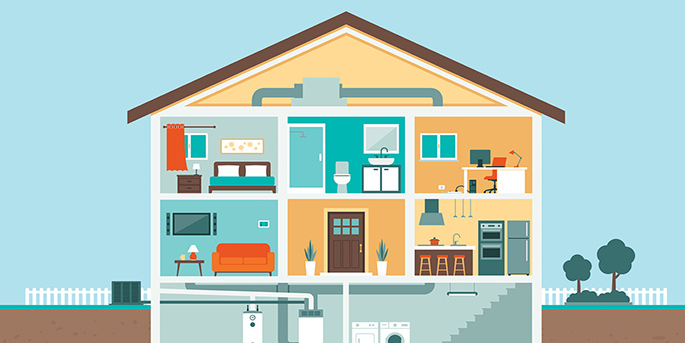5 Things to Know Before Buying an Older Home
Minute Read

Homeownership is very much a “you live and learn” experience. Most homes I toured in Harrisburg were built in 1910, including the house I now own. While my house has nice upgrades, it was sold to me within 24 hours, and I often wonder if there was a reason for that. To help house hunters, here are five things I wish I knew before buying an older home in the city. They may help you answer the question, “are old houses worth buying?”
Lesson 1: Hire Multiple Home Inspectors
Today, buyers often skip a home inspection, which I would not advise on an older home. On the contrary, I recommend hiring a general home inspector to evaluate your home. Based on their findings, consider hiring a specialized inspector or having a consultation from a particular company to address issues, such as plumbing and foundation. I chose not to employ multiple inspectors but wish I had.
Lesson 2: Build a Generous Emergency Fund
Saving for a down payment may have depleted your finances, but the costs of owning a home, especially an older one, require a healthy emergency fund. Shortly after I moved in, I discovered that a rotting floor joist in my basement was causing part of my kitchen floor to cave in. My emergency fund took a hit and other issues continue to reduce my funds. If you have existing equity, a home equity loan could help finance your fixes; without equity, a personal loan might be your answer.
Lesson 3: Overestimate Your Renovation Costs
As you make fixes to your home, whether emergency fixes or upgrades to improve your home’s value, ensure you budget for the unexpected. Contractors giving me quotes would often say, “your house is older and we don’t know what we will find.” This is a “buying old house problem.” Those unknowns can drive up quotes exponentially. Ensuring you have extra money allocated towards projects and getting at least three project bids is recommended.
Lesson 4: Homeowners Insurance Premiums May Be Higher
While you may qualify for a standard homeowner policy, your home will likely cost more to insure. Working with an insurance provider will help you obtain the right insurance for your home. Older structures and systems, along with the cost to rebuild, are common factors that insurance agents consider. Specific home components that impact insurance include:
- Home’s age
- Electrical wiring
- Building materials
- Roof
- Plumbing
Lesson 5: Accessibility Issues May Impend Contractor Work
Until I lived in a city, I did not realize some contractors and service providers were unwilling to work on city homes because they lacked space to park their vehicles. Also, blocking street access can lead to a ticket. When I call for home project quotes, I always tell them I live in the city with limited street parking. I’ve found there are companies who will come into the city.
Buying an Older Home with a Mortgage from Members 1st
Is buying an older home worth it? Yes, because despite the challenges, I do love my home. While the issues I outlined may not be on your new home checklist when you move into an older house, they are worth keeping in mind. Members 1st was a great partner to have when I was applied for a mortgage and I encourage you to reach out to their team for more information about mortgage loans. Also, consider attending a homebuyer seminar for more information. Watch for a future blog post on common household problems buyers may encounter in an older home. Happy house hunting!



